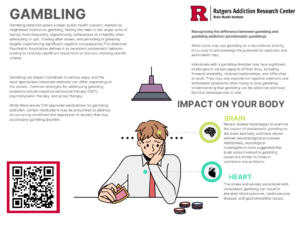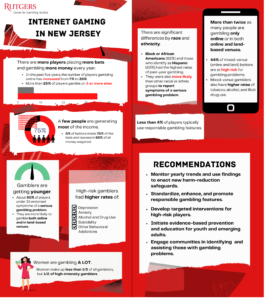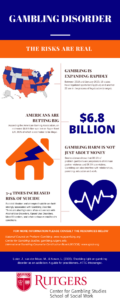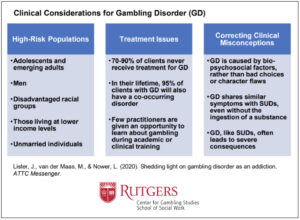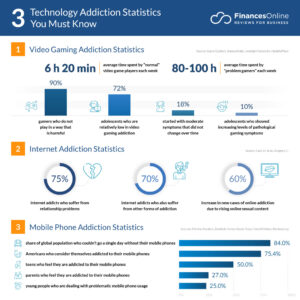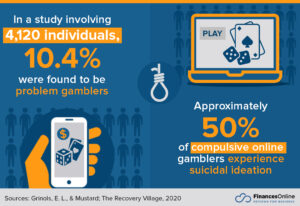Statistics on Gambling Trends in the United States
The National Council on Problem Gambling (NCPG) estimates that approximately 5 million Americans meet the criteria for compulsive gambling. However, only around 8 percent of these individuals will ever seek help for their problem. Gambling addiction is very treatable once it has been identified.
Gambling addiction is a significant public health concern characterized by increasing preoccupation with gambling, a need to bet more money more frequently, restlessness or irritability when attempting to stop, “chasing” losses, and loss of control manifested by continuation of the gambling behavior in spite of mounting, serious, negative consequences. The American Psychiatric Association defines gambling disorder as: “Persistent and recurrent problematic gambling behavior leading to clinically significant impairment or distress” that meets at least four of nine criteria.1
Gambling can affect people in various ways, and the most suitable treatment methods can vary based on the individual. Common approaches to addressing gambling issues include cognitive behavioral therapy (CBT), psychodynamic therapy, group therapy, and family therapy 2.
Counseling can be valuable in aiding individuals to grasp the impact of gambling on themselves and their families, explore choices, and cultivate effective problem-solving abilities2.
It is important to note that there are currently no medications approved by the FDA specifically for treating gambling disorders. However, certain medications may be prescribed to address co-occurring conditions such as depression or anxiety that may be present alongside the gambling disorder. Support from loved ones, including family and friends, plays a crucial role in an individual’s recovery from gambling.2
Knowing the difference between gambling and problematic gambling3:
While gambling may be viewed as a recreational activity by some, it is crucial to recognize the potential for addiction and the associated risks. A person with a gambling disorder may encounter severe problems in their life. They may exhaust their savings or financial resources to fund their gambling activities, leading to financial instability. Additionally, their relationships, particularly with their spouse and family, can suffer as a result of the preoccupation with gambling. Difficulties at work may arise due to the negative impacts of excessive gambling on their productivity and focus.
People with a gambling disorder often experience negative emotions such as guilt or shame related to their behavior. They may also exhibit withdrawal symptoms, including restlessness and irritability, when attempting to cease gambling. It’s important to note that gambling can be addictive and have harmful consequences similar to those associated with drug addiction.
For more information visit Rutgers Center for Gambling Studies, or 1800 Gambler
1 American Psychiatric Association. Diagnostic and Statistical Manual of Mental Disorders, Fifth Edition. Washington, DC: American Psychiatric Association (2013).
2 American Psychiatric Association. https://www.psychiatry.org/patients-families/gambling-disorder/what-is-gambling-disorder
3 Yale Medicine https://www.yalemedicine.org/conditions/gambling-disorder


